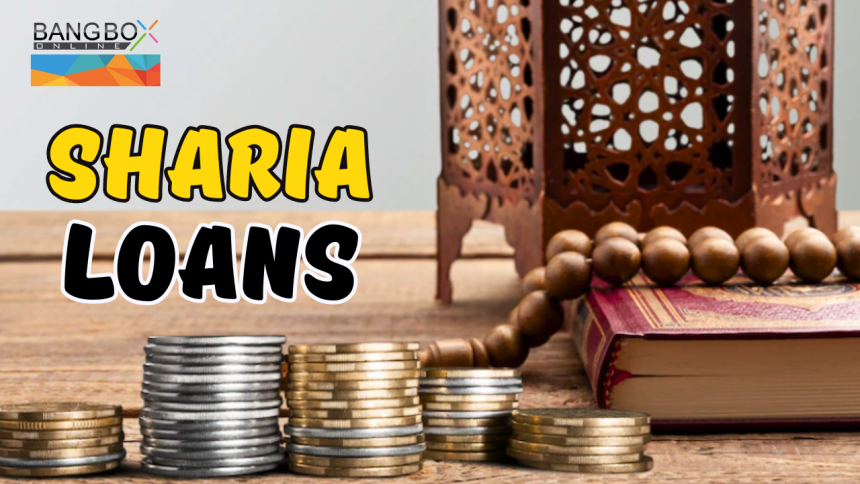
Sharia Loans
Islamic shariah loans, home loans, mortgage loans, Shariah banks in UK, Shariah banking system, interest free loans for students
Islamic Sharia Loans
Sharia loans actually refer to all the arrangements that are financial in nature in accordance with all the Islamic laws. There are several important guidelines and some principles in Islamic finance and Muslims are obliged to follow all these laws just to make sure that all the transactions are within the boundaries of Islamic ethics. Some of the key points linked with the loans of Sharia compliance include:
· Riba free:
Islamic finance is basically working on one of the most significant principles which is the prohibition of all kinds of interest. The other name of interest in the Arabic language is “Riba”. That is why the loans that are Sharia compliant have no involvement of interest in any form, neither in receipt nor in payment. In contrast, they operate on the basis of some other alternative procedure in order to generate some returns.
· Profit and Risk sharing:
There is another very attractive trait of Islamic finance that it promotes profit sharing as well as risk sharing between both parties (borrower and lender). In some situations, the borrower and lender actually share both the losses and profits linked with some particular project or financed asset.
· Asset-Backed:
This type of loan involves financing that is based on asset-backed. In simple words, we can say that a loan is associated with some tangible asset, and return or profit can be linked with the lender which is drawn from the production or performance of that particular asset.
· Prohibition of Un-lawful activities:
Another attractive trait of Sharia-compliant type of loans is that a person cannot use that money for any kind of haram or unlawful activity such as alcohol, business related to pork, or gambling.
· Some percentage for charity:
Some of the Sharia loans also incorporate a small percentage for charity. That means from the overall profit generated a small portion is extracted and then it is utilized for the sake of charity-based projects and causes.
· Transparency:
Fairness and transparency are the basic principles of Islamic finance in every aspect. All the conditions and terms of Sharia loans must be communicated in a very clear way and an agreement should be signed by both parties to avoid any kind of confusion.
Sharia-based financing is also offered by the financial institutions as well as by Islamic banks. Some of the types include Ijara (home financing), Qard al Hasan (personal financing), and Murabaha (business financing). All these arrangements are basically designed in such a manner that they comply with the Islamic financing principles yet they are able to meet the needs of businesses and individuals.
Sharia Banks in the UK
There are several Islamic institutions and banks in the United Kingdom that offer services in compliance with the Islamic Sharia. Such institutes provide all the services and products that are aligned with the principles of Islam, this means they don’t involve riba (interest) in any way shape, or form. Some of the renowned Islamic banks present in the United Kingdom are given below:
1. Al-Rayan Bank (largest bank based on Islamic Sharia in the United Kingdom)
2. Bank of London and the Middle East (BLME)
3. Gatehouse Bank (second largest Islamic bank in the United Kingdom)
4. Qatar Islamic Bank (QIB)
5. UNB (United National Bank)
Types of Islamic Loans
Islamic Home Loans
Such loans are also known as home financing and the Islamic institutes make sure to give the loans on the basis that adhere to all the principles of Islam. They are arranged in a manner that avoids interest in all possible ways. Islamic institutes instead of charging interest provide alternative ways to facilitate the process of home ownership. Some important types of Islamic home-based financing include:
o Ijara:
Under this particular arrangement, the bank actually purchases the property and then provides (leases) it to the owner of the home. The homeowner gives the rent of the property to the bank. This rent also has a margin of profit for the bank. By the end of the lease period owner of the home has the option to purchase the property.
o Musharakah
The homeowner and the bank both enter into a partnership under this particular arrangement in order to purchase the property jointly. The homeowner basically formulates a down payment and after that pays the rent of property to the bank for a small portion of the property that is owned by the bank. After some period of time, the homeowner buys a share of the bank and becomes the sole owner of his property.
o Diminishing Musharakah
This arrangement is similar to musharakah but money given by the owner is in some predefined increments.
o Murabaha
In this type of arrangement bank actually purchases the property on behalf of the owner and then at a markup, sells it to the owner of the home. In some installments, the homeowner pays the money at the purchase price.
o BBA (Bai’Bithaman Ajil (BBA)
It is a kind of deferred payment sale. In this arrangement, the bank purchases the property and sells it to the owner of the home at a price higher than the actual price. However, the owner is allowed to pay the money in installments.
Islamic Loans for Students
This type of Sharia loan is known as Islamic education financing or student loans. All such loans are designed to help students in order to pursue their education without taking money on the basis of interest.
Final Word
The most important point that one should keep in mind is that the principles of Sharia loans actually vary among different regions and institutions. So, the borrowers should be careful enough to read and review all the conditions and terms before actually taking the loan to avoid any kind of confusion. This will help the borrowers to analyze that if the conditions of Sharia loans align with their financial values and goals. In addition to this, a person can also seek guidance from Islamic scholars as well as experts on whether the principles of such loans are in accordance with the principles of Islam or not.


7 Ways to Make Your Routine Dental Checkups Stress-Free
Discover 7 easy ways to make routine dental checkups stress-free. Learn tips to stay calm...


